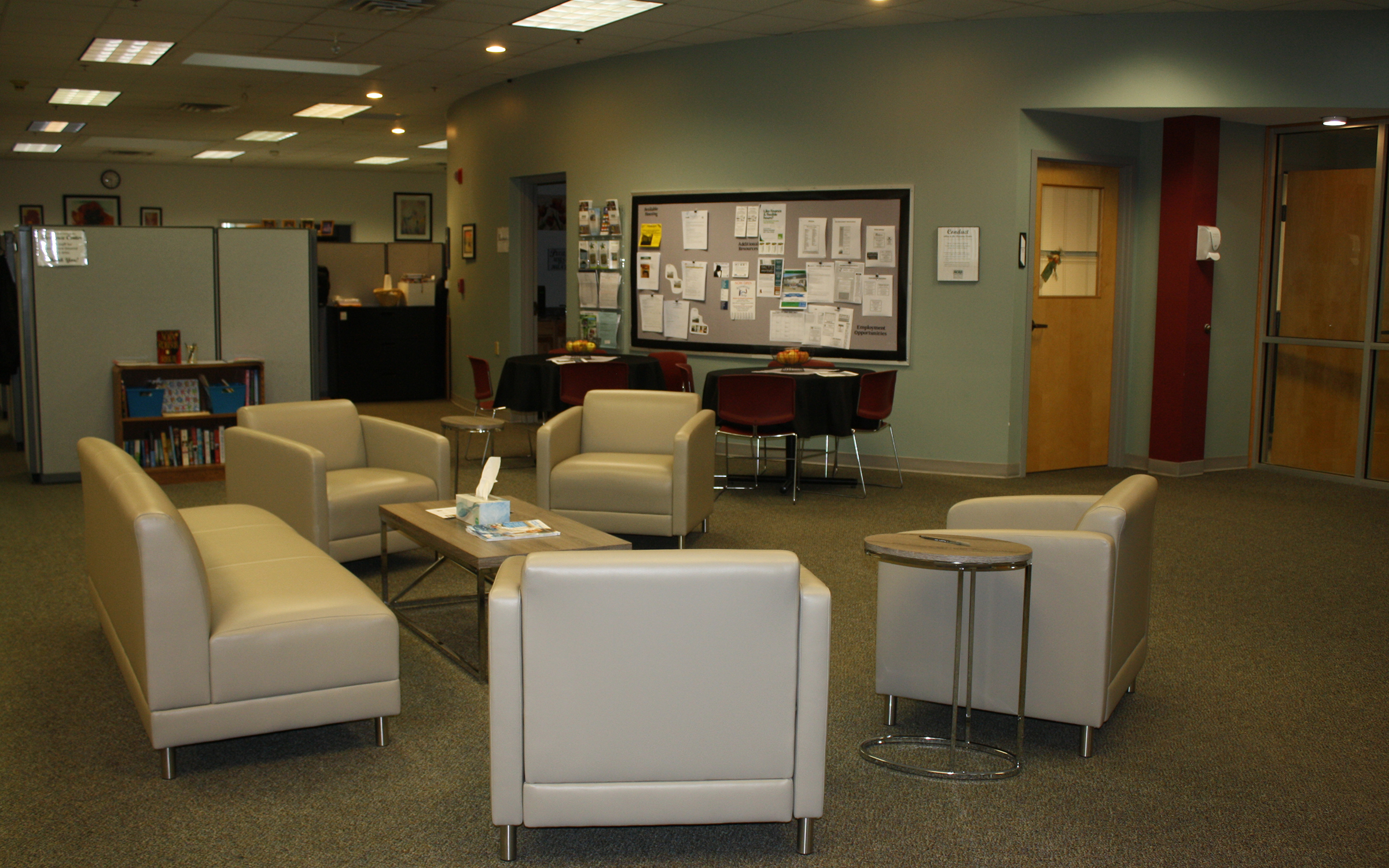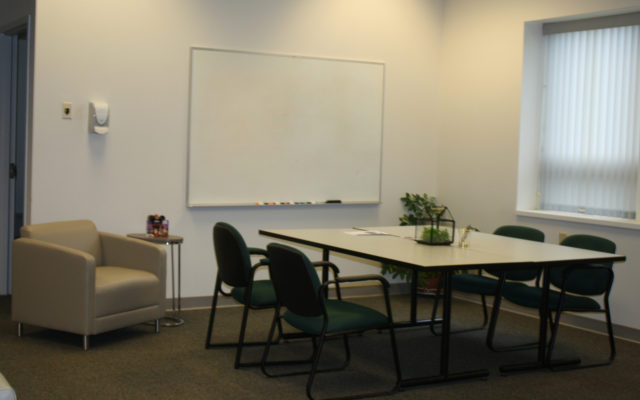
PRESQUE ISLE, Maine — The Aroostook County Action Program recently redesigned part of its space in the Presque Isle location to create an open-access center that officials say better fits with the needs of individuals and families who come looking for crucial community services.
The Hope and Prosperity Center officially opened on Sept. 30. The space, which is situated across from ACAP’s reception area, includes comfortable seating for one-on-one meetings between clients and family coaches, a technology center with free access to two computers and telephones, a classroom space, conference room and lunch area.
Center director and family coach Heidi Rackliffe said that in recent months ACAP has noticed an increase in visitors to the Presque Isle location who have inquired about services. Those clients frequently meet with family coaches for extended periods of time, often several hours or more.
From April 1 to June 30, 2019, ACAP served over 180 individuals and families who were identified as homeless or housing insecure. Clients met with family coaches in a space that proved too small to accommodate longer conversations.
- ACAP’s new Hope and Prosperity Center includes a space for formal meetings between clients, family coaches and officials from other community agencies. (Staff photo/Melissa Lizotte)
“We saw that there was a need for a space where people had access to all our services in the same area,” Rackliffe said.
When an individual walks through the ACAP doors unsure who can address their needs, a family coach works with them to create a “schedule,” a list of their most crucial needs at that time to address in whatever time frame is necessary. A person’s time in the Hope and Prosperity Center can range from a few hours to an entire day depending on their identified needs.
Family coach Amber Tierney noted that during the first week of operation the Hope and Prosperity Center saw five individuals come through the doors seeking services. She expects the number of people served to increase in the coming weeks, as word of mouth has become a powerful way for people to connect with ACAP.
“Not everyone we serve has access to the internet, newspapers or TV, so when they find themselves in a time of need, often someone has told them that ACAP is a safe place to go,” Tierney said on Monday, Oct. 7.
Tierney recalled one particularly poignant story that involved a family who had unexpectedly become homeless in the middle of the night. The father and young daughter came to ACAP while the mother was working a 12-hour shift at work and spent five hours meeting with a family coach. The little girl did not have a jacket, shoes or socks.
“If we didn’t have this new space, they would have had to sit in a small room that was formerly a closet,” Tierney said. “Instead, they had access to a hot meal and clothes for their daughter while we helped them seek shelter options.”
At the Hope and Prosperity Center, all clients have access to frozen microwave meals that they can eat on site, emergency food and toiletry packages, children’s books and games and a private office for when confidential meetings arise. They can use the computers and phones to fill out job applications or seek out a variety of services within the community.
Funding from former Presque Isle resident Mary Akeley Smith allowed ACAP to purchase a seven-passenger van to transfer clients to area appointments and hire a financial consultant to help the organization sustain the project long-term. Smith’s donation included yearlong funding for a center director, a position Rackliffe has filled, in order to launch the center.
The center is located in a space that used to contain a full large room of cubicles and workspaces for ACAP employees. Sherry Locke, the agency’s development and communications manager, said employees have been supportive of the layout changes necessary to make the Hope and Prosperity Center possible.
“Everyone has been very willing to do whatever it takes to put our clients first,” Locke said.
ACAP will continue to re-evaluate the center’s layout and success to determine what can make the experience better for clients, including how to continue partnering with other local agencies.
Since coming to ACAP 10 years ago, Rackliffe has seen the number of family coaches increase from one to nine, with the most recent coach hired this past week. She anticipates that as issues such as housing, food insecurity, workforce growth and substance abuse become more prevalent, the Hope and Prosperity Center will evolve to meet the community’s needs.“When a lot of us started working in social services we were told to work ourselves out of a job,” Rackliffe said. “Unfortunately, the services we offer will never go away. That’s why we’re always thinking about how we can best serve folks in our community.”








